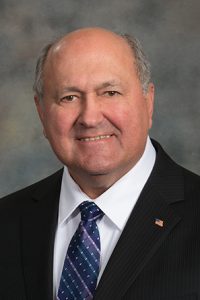Higher reimbursement rate proposed for special education expenses
The Education Committee heard testimony Jan. 30 on a bill that would direct more state funding toward special education programs and support services.

LB876, introduced by Omaha Sen. Rick Kolowski, would require the state to reimburse school districts at least 80 percent of the total excess allowable costs for those programs and services. Kolowski said the state currently reimburses schools for approximately 48 percent.
“If the state takes a larger share of the costs, it will relieve strains on local budgets,” he said. “This will allow districts to lower property taxes, especially in districts that do not receive equalization funding.”
The state Department of Education estimates that the bill would increase state special education reimbursement by approximately $150 million in fiscal year 2018-19 and an additional $170 million in FY2019-20.
Jenni Benson, president of the Nebraska State Education Association, testified in support of the bill. She said school districts need additional funding to provide services for an ever-growing number of children identified as having special needs at a time when federal and state reimbursements have not kept up with promises.
The federal government has pledged to reimburse schools 40 percent of their special education expenses, Benson said, but they currently provide only about 14 percent.
John Skretta, superintendent of the Norris School District, also testified in support of the bill. Norris spent just over $2 million on special education services in the 2016-17 school year, he said, and the state reimbursed approximately 45 percent. If Norris had been reimbursed at the rate proposed by LB876, it would have received an additional $700,000, Skretta said.
“That would be incredibly beneficial to the operations of our district,” he said.
Ann Hunter-Pirtle, executive director of Stand for Schools, also testified in support of the bill. She said special education and support services are required by law, but neither the state nor federal governments have provided the promised funding, leaving local property tax payers to foot the bill.
“Increasing state investment would reduce local property taxes and free up local resources to meet other growing needs,” Hunter-Pirtle said.

